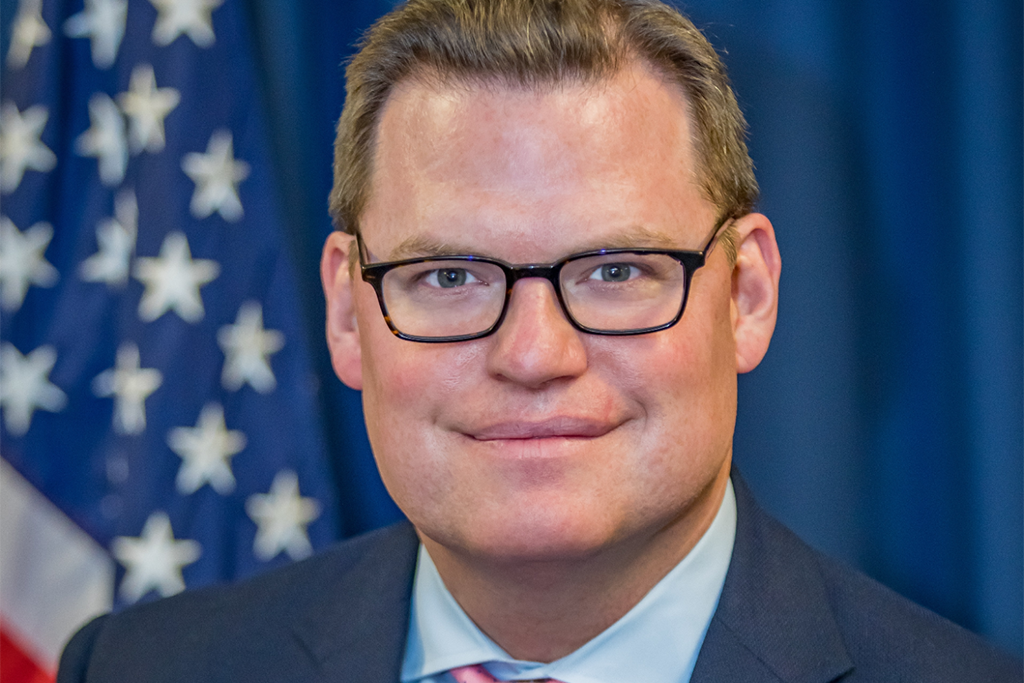March 06, 2023

The United States has five federal agencies that directly supervise depository institutions. The one responsible for the largest number is the National Credit Union Administration. The NCUA oversees about 3,000 federally chartered credit unions, and it insures another 2,000 or so that are chartered by the states. That is a total of nearly 5,000 institutions, with a combined $2 trillion in assets and 120 million customers, who at credit unions are technically “members.” This is a small share of the overall financial system — these institutions are overwhelmingly small in size — but credit unions play a large role in their respective communities, including for members who share a “common bond,” such as being current or former employees of a major organization like the U.S. Navy.
Late last year, we had a show with the NCUA’s Chairman, Todd Harper. Today, we have the pleasure of talking with the NCUA’s Vice Chairman, Kyle Hauptman. We recorded these two shows at almost the same time late last year.
Kyle has a fascinating background. His father was in the National Park Service (he was actually superintendent of one of my very favorite national parks). Kyle worked for Lehman Brothers during the financial crisis. He’s lived in Japan and Australia. He joined Mitt Romney’s 2012 presidential campaign, and then moved to Washington to serve on the staff of the Senate Banking Committee (something that I, too, did many years ago). In 2020, he was appointed by President Trump to the NCUA board. He has a passion for policy and politics (you’ll enjoy his story about how this trait got him in trouble as a child).
Kyle’s core message today is to spread the word that the NCUA has taken a somewhat positive stance regarding credit union involvement with the crypto sector by issuing guidance and a set of principles. Kyle says the Board wants to encourage active tech innovation by credit unions, because they worry that without it, these small institutions will not survive in the digital era. The agency wants them to be able — within their narrow legal remit, of course — to undertake responsible activities relating to digital assets. More broadly, the NCUA sees a range of promising possibilities for other ways that credit unions could use blockchain and digital ledger technology, not as products, but behind the scenes, to operate better. Kyle talks about some of these use cases.
He also widens the lens on financial innovation, arguing that it is critical to American competitiveness, the strength of the dollar, and national security. He worries that while the United States “won the Internet,” it may lose its leadership positioning with the next generation of technology, partly due to the risk of getting the legislative and regulatory framework wrong.
We got together in the Navy Yard section of Washington, which is where I’m based, and we covered a lot of other ground. One major theme is how to make regulation work well. Kyle talks about the problems that can arise when agencies regulate through enforcement actions rather than rules. He describes an NCUA initiative designed to reduce the risk that credit unions will misunderstand or overreact to informal input from their examiners. He also explains another initiative to routinely elicit feedback from institutions on their examination experience, akin to a customer survey. And on crypto, he shares his concerns about rules prohibiting most of the regulators from owning any — he likens this to having FAA employees who have never been on an airplane or seen an airport.
Also, on the topic of credit unions, please note that we at AIR are working on an initiative to help minority depository institutions, or MDIs, modernize their technology. Led by my co-founder David Ehrich, AIR is partnering with Inclusiv and the National Bankers Community Alliance, with support from Visa and Citi, to create digitization roadmaps for small minority institutions — both credit unions and community banks. A third NCUA Board Member, Rodney Hood, has been instrumental to these efforts as well.
More on Kyle
Kyle S. Hauptman was sworn in as a member of the NCUA Board on December 14, 2020. The NCUA Board approved his designation as Vice Chairman of the NCUA on December 18, 2020.
Prior to his joining the NCUA Board, Mr. Hauptman served as Senator Tom Cotton’s (R-Arkansas) advisor on economic policy, as well as Staff Director of the Senate Banking Committee’s Subcommittee on Economic Policy.
Previously, Mr. Hauptman was Senior Vice President at Jefferies & Co. He worked at Lehman Brothers as a bond trader in New York City as well as in their international offices in Tokyo and Sydney, and served as a voting member on the U.S. Securities and Exchange Commission Advisory Committee on Small and Emerging Companies.
Mr. Hauptman served on President Donald J. Trump’s transition team in 2016 and was Senator Mitt Romney’s (R-Utah) policy advisor for financial services during the 2012 presidential campaign.
Mr. Hauptman holds a Master’s in Business Administration from Columbia Business School and a bachelor of arts from University of California, Los Angeles.
More for our Listeners
Coming up next on the show is my conversation with Tara Rice from the Bank for International Settlements. After that we have a very thought-provoking discussion with Tomicah Tillemann of Haun Ventures. And we’re coming up on our 200th episode, so we’ll have something special for you to mark the occasion.
Next month I’ll be in Basel for the BIS Innovation Summit, and later I will be speaking at the Just Economy Conference of the National Community Reinvestment Coalition. I’ll also be at Fintech Nexus this spring, and the ABA compliance conference.
Don’t forget to follow AIR on LinkedIn and Twitter. Be sure to leave us a five-star rating on your favorite podcast platform. And please follow me personally on Twitter @JoAnnBarefoot.
Stay informed by joining our mailing list
